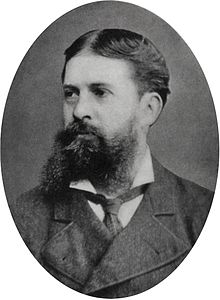استدلال ربایشی

استدلال رُبایِشی یا استنتاجِ بهترینِ تببین شکلی از استنباط منطقی است که با یک مشاهده یا مجموعهای از مشاهدات آغاز میکند و سپس به دنبال یافتنِ سادهترین و محتملترین توضیح برای آن مشاهدات است. این فرایند، برخلاف استدلال قیاسی، هرچند نتیجۀ معقولی به دست میدهد، اما به طور قطعی آن را اثبات نمیکند. بنابراین، نتیجههای استدلال ربایشی دارای ردّی از عدم اطمینان یا تردید دانسته میشوند، و با اصطلاحاتی مانند "بهترین گزینۀ موجود" یا "به احتمال زیاد" توصیف میشوند. کمابیش میتوان استدلال ربایشی را به مثابه استنتاج بهترین تببین[۱] قلمداد کرد، گرچه همۀ موارد کاربردِ اصطلاحات استدلال ربایشی و استنتاج بهترین تببین دقیقاً با یکدیگر معادل نیستند.[۲] [۳]
منابع
- ↑ Sober, Elliott (2013). Core Questions in Philosophy: A Text with Readings (6th ed.). Boston: Pearson Education. p. 28. ISBN 9780205206698. OCLC 799024771.
I now move to abduction—inference to the best explanation.
- ↑ Campos, Daniel G. (June 2011). "On the distinction between Peirce's abduction and Lipton's inference to the best explanation". Synthese. 180 (3): 419–442. doi:10.1007/s11229-009-9709-3.
I argue against the tendency in the philosophy of science literature to link abduction to the inference to the best explanation (IBE), and in particular, to claim that Peircean abduction is a conceptual predecessor to IBE. [...] In particular, I claim that Peircean abduction is an in-depth account of the process of generating explanatory hypotheses, while IBE, at least in Peter Lipton's thorough treatment, is a more encompassing account of the processes both of generating and of evaluating scientific hypotheses. There is then a two-fold problem with the claim that abduction is IBE. On the one hand, it conflates abduction and induction, which are two distinct forms of logical inference, with two distinct aims, as shown by Charles S. Peirce; on the other hand it lacks a clear sense of the full scope of IBE as an account of scientific inference.
- ↑ Walton, Douglas (2001). "Abductive, presumptive and plausible arguments". Informal Logic. 21 (2): 141–169. CiteSeerX 10.1.1.127.1593. doi:10.22329/il.v21i2.2241.
Abductive inference has often been equated with inference to the best explanation. [...] The account of abductive inference and inference to the best explanation presented above has emphasized the common elements found in the analyses given by Peirce, Harman and the Josephsons. It is necessary to add that this brief account may be misleading in some respects, and that a closer and more detailed explication of the finer points of the three analyses could reveal important underlying philosophical differences. Inferences to the best explanation, as expounded by Harman and the Josephsons, can involve deductive and inductive processes of a kind that would be apparently be excluded by Peirce's account of abduction.